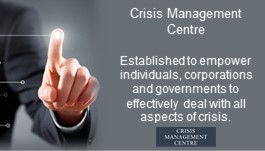Due to the global COVID-19 pandemic, investors have become more selective with their investments now more than ever, and for good reasons. Market volatility, combined with the uncertain economic outlook for most industries, has made it more difficult for most start-ups and businesses to raise funds for sustenance or growth.

Subscribe to our Telegram channel to get a daily dose of business and lifestyle news from NHA – News Hub Asia!
According to investment professionals, the strategy gap between start-ups and investors has never been so wide. But with the right mindset and approach, start-ups and businesses will be able to put themselves in the shoes of their investors to secure a much-needed investment in this post-COVID-19 era.
Investors are not your enemy
Entrepreneurs need to put themselves in the shoes of their potential investors to be able to structure a win-win deal that benefits both their businesses and the investor. Additionally, founders and business owners should view investors as strategic partners rather than just a source of funds.
Investors are neither interested in taking over your business nor removing you from the company.
But if it comes to that, it becomes a bad investment that reflects poorly on their leadership capabilities while letting their peers and partners down. They want to work with entrepreneurs to realize their returns for the least amount of effort. Being too defensive, especially in times of capital scarcity, will not help.
Speak your investor’s language
Investors hire professionals to scout for the best investment deals. Oftentimes, these professionals are presented with potential deals daily and have a set of predetermined systems when evaluating potential investments.
Keep in mind that these are not your average business managers, product specialists or marketing gurus. Do not pitch to them as you are pitching to a business owner or entrepreneur.
They understand numbers, and they can view and break your business down to examine it based on Internal Rate of Return, Price / Earnings Ratio, Hurdle Rate or Weighted Average Cost of Capital, much like an Excel spreadsheet.
Ask “what would you like to invest in?”, as opposed to “would you invest in my business?”
Try to understand the type of investments that have provided them with the best returns previously. What industries do they feel comfortable investing in? What is their risk tolerance? What is their investment mandate? What is their asset under management?
Also consider your own preferred exit strategy with most of your investments. With this heightened level of understanding, adjust your business plans, strategies and returns where possible to match their investment mandates and preferences.
Understanding your competition
Your biggest competition may not always be another similar start-up or idea. Business owners need to understand alternative investments that are out there, especially ones that are picking up momentum.
Ask yourself these questions:
- Will your business provide better returns in the same amount of time versus another hedge fund?
- Will it be more secure than the bond market, and will it provide the same guarantee as asset backed securities?
- Are the risks comparable to similar investment in different regions?
- Why would they invest in you directly as opposed to placing it in a venture capital fund that spreads their risk profile?
Timing is everything
If you are trying to pitch an idea or a technology that the market is not ready for, the investors will most likely be apprehensive. Ideas and proposals need to be what is ‘hot’ or being discussed right now among the investors.
If it is too early, you would be perceived as not yet having a market. If you are too late, the market becomes too competitive.
Therefore, it is crucial to be updated on everything under the sun by reading investment forums, analyzing investment trends and other potential industries that investors are eyeing.
Prove that you are a good investment
Before investing more money into a business, investors are typically interested in observing how businesses perform — through the progressive management of already-secured funds. By successfully proving the ability to manage the first batch of disbursement from the investor as planned, the next incremental tranche will follow, and the cycle continues.
Think of it as being hired by a company for an annual salary package. The total amount of one’s annual salary is paid monthly with strict protocols on performance and key indicators. They will be under probation for several months until the employer agrees to increase the salary and trust that they are keeping to their end of the bargain.
The same underlying concept is employed when investors commit to a business investment, especially during a pandemic where everything can be deemed as a risk.
Investors invest in people
Investors invest in people who drive the company forward with continuous innovation. Entrepreneurs should be more focused on developing their management skills, expertise, market knowledge, sales pitching and other intrinsic factors as opposed to constantly trying to raise an exuberant amount of capital.
In an investment pitch with start-ups, almost all the weightage is placed on the founders’ capabilities, potential, and business acumen. The idea, product and plan become secondary.
Think of the pitch as a job interview. If you cannot sell yourself, you will not be able to sell your business.
Source: Ahmad Izmir Mujab, CEO of Crewstone International Sdn Bhd. (Press release)


